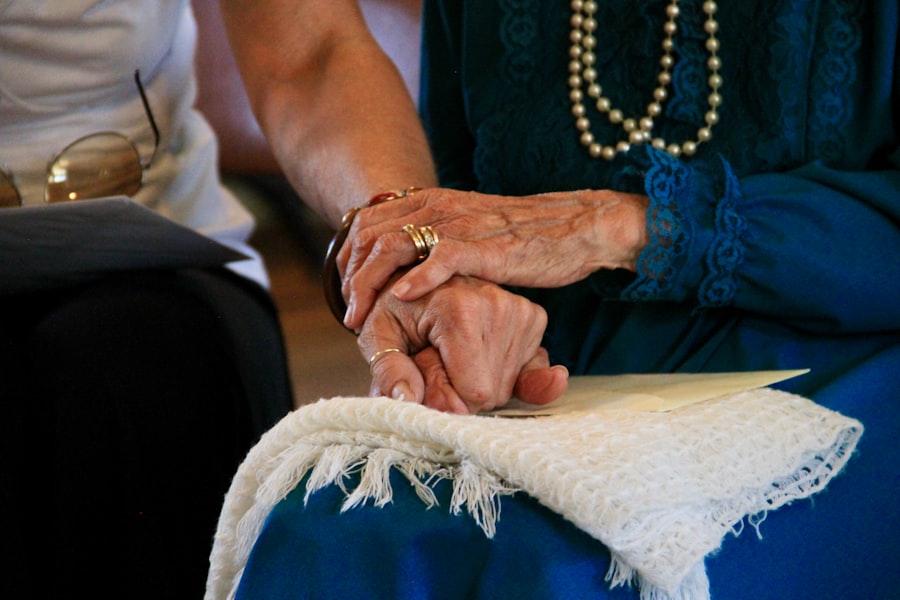When you think about nursing homes, it’s essential to recognize that ownership plays a crucial role in the quality of care provided to residents. Nursing homes can be owned by various entities, including private corporations, non-profit organizations, and government agencies. Each type of ownership can influence the operational practices, funding, and overall mission of the facility.
Understanding who owns a nursing home can help you make informed decisions about care options for yourself or your loved ones. Ownership structures can significantly impact the culture within a nursing home. For instance, a non-profit organization may prioritize patient care and community service over profit margins, while a for-profit entity might focus on financial performance.
This distinction can affect everything from staffing levels to the quality of services offered. By grasping the nuances of nursing home ownership, you can better navigate the complex landscape of elder care and advocate for the best possible environment for those in need.
Key Takeaways
- Nursing home ownership varies widely, including for-profit, non-profit, and government-owned facilities.
- Legal and regulatory frameworks are crucial to ensure compliance and protect residents’ rights.
- Transparency in ownership is essential for accountability and improving quality of care.
- Researching ownership involves identifying key players and understanding their influence on facility operations.
- Advocacy and government oversight play vital roles in promoting accountability and enhancing nursing home care standards.
Types of Nursing Home Ownership
Nursing homes can be categorized into several types based on their ownership structure. The most common types include for-profit, non-profit, and government-owned facilities. For-profit nursing homes are typically owned by private corporations or investors who aim to generate profit from their operations.
These facilities may have more flexibility in terms of funding and resources but may also prioritize financial performance over resident care. On the other hand, non-profit nursing homes are often established with a mission to serve the community rather than to generate profit. These facilities may rely on donations, grants, and government funding to operate, which can sometimes lead to a more resident-focused approach.
Government-owned nursing homes are funded and operated by local, state, or federal agencies. They often provide care to low-income individuals and may have specific mandates to ensure quality care for vulnerable populations. Understanding these distinctions can help you assess which type of nursing home might best meet your needs or those of your loved ones.
Legal and Regulatory Requirements for Nursing Home Ownership

Nursing home ownership is subject to a complex web of legal and regulatory requirements designed to ensure the safety and well-being of residents. These regulations vary by state and can include licensing requirements, health and safety standards, and staffing ratios. As a potential owner or someone interested in nursing home operations, it’s crucial to familiarize yourself with these regulations to ensure compliance and maintain high standards of care.
In addition to state regulations, nursing homes must also adhere to federal guidelines set forth by agencies such as the Centers for Medicare & Medicaid Services (CMS). These guidelines cover various aspects of care, including resident rights, quality assurance, and reporting requirements. Understanding these legal frameworks is essential for anyone involved in nursing home ownership or management, as non-compliance can lead to severe penalties, including fines or loss of licensure.
How to Research Nursing Home Ownership
| Research Metric | Description | Source/Tool | Importance Level |
|---|---|---|---|
| Ownership Type | Identify if the nursing home is privately owned, corporate, nonprofit, or government-operated. | State Licensing Boards, Nursing Home Website | High |
| Ownership History | Review past ownership changes and any related controversies or legal issues. | State Health Department Records, News Archives | Medium |
| Parent Company Information | Research the parent company’s reputation, financial stability, and other facilities owned. | Business Registries, Corporate Websites | High |
| Licensing and Certification Status | Check if the facility is currently licensed and certified to operate. | State Health Department, CMS Database | High |
| Inspection Reports | Review recent state and federal inspection reports for compliance and violations. | CMS Nursing Home Compare, State Health Department | High |
| Ownership Disclosure | Verify if the facility discloses ownership information publicly as required by law. | State Regulatory Agencies, Facility Website | Medium |
| Financial Performance | Analyze financial health and funding sources of the nursing home. | Public Financial Filings, State Reports | Medium |
| Related Legal Actions | Check for lawsuits or legal actions involving the ownership or management. | Legal Databases, News Sources | High |
| Community Reputation | Gather feedback from residents, families, and local community. | Online Reviews, Local Forums | Medium |
If you’re looking to understand more about nursing home ownership, conducting thorough research is vital. Start by exploring online resources that provide information about specific facilities in your area. Websites like Medicare.gov offer detailed data on nursing homes, including ownership information, quality ratings, and inspection results.
This information can help you gauge the reputation and performance of different facilities. Additionally, consider reaching out to local advocacy groups or ombudsman programs that focus on elder care. These organizations often have valuable insights into the ownership structures of nursing homes in your community and can provide guidance on how to navigate the system effectively.
Engaging with these resources will empower you to make informed decisions regarding nursing home options.
Identifying the Key Players in Nursing Home Ownership
Understanding who the key players are in nursing home ownership is essential for grasping how these facilities operate. Typically, ownership involves a range of stakeholders, including owners or investors, management teams, and staff members. Owners may be individuals or corporations that provide the necessary capital for operations, while management teams are responsible for day-to-day operations and ensuring compliance with regulations.
Staff members play a critical role in delivering care and services to residents. Their experience and training can significantly impact the quality of care provided in a nursing home. By identifying these key players, you can better understand the dynamics at play within a facility and how they influence the overall environment for residents.
The Role of Government Agencies in Regulating Nursing Home Ownership

Government agencies play a pivotal role in regulating nursing home ownership to ensure that facilities meet established standards of care. At both the state and federal levels, agencies such as CMS oversee licensing, inspections, and compliance with health and safety regulations. These agencies conduct regular inspections to assess the quality of care provided in nursing homes and ensure that they adhere to legal requirements.
In addition to regulatory oversight, government agencies also provide funding for certain nursing homes through programs like Medicaid and Medicare. This funding is crucial for many facilities, particularly those serving low-income residents. Understanding the role of these agencies can help you appreciate the regulatory landscape surrounding nursing home ownership and its impact on care quality.
The Importance of Transparency in Nursing Home Ownership
Transparency in nursing home ownership is vital for fostering trust between residents, families, and facility operators. When ownership structures are clear and accessible, it allows families to make informed decisions about where their loved ones will receive care. Transparency also encourages accountability among owners and operators, as they are more likely to adhere to ethical practices when their actions are subject to public scrutiny.
When residents and their families are aware of who owns and operates a facility, they are more likely to voice concerns or advocate for changes when necessary. This open dialogue can create a culture of accountability that ultimately benefits everyone involved.
Challenges in Uncovering Nursing Home Ownership
Despite the importance of transparency, uncovering nursing home ownership can be challenging. Many facilities may not readily disclose their ownership structures or may operate under complex corporate entities that obscure accountability. This lack of clarity can make it difficult for families to assess the quality of care provided at a facility or understand its operational priorities.
Additionally, some nursing homes may change ownership frequently due to mergers or acquisitions, further complicating efforts to track who is responsible for care at any given time. To navigate these challenges effectively, it’s essential to utilize multiple resources and engage with local advocacy groups that specialize in elder care issues.
The Impact of Ownership on Nursing Home Quality of Care
The type of ownership can significantly influence the quality of care provided in nursing homes. Research has shown that non-profit facilities often outperform their for-profit counterparts in terms of resident satisfaction and quality metrics. This difference may stem from non-profits’ focus on community service rather than profit generation, leading them to prioritize resident well-being over financial performance.
Conversely, for-profit nursing homes may face pressures that can compromise care quality. In an effort to maximize profits, these facilities might cut corners on staffing or resources, which can negatively impact residents’ experiences. Understanding how ownership affects care quality is crucial when evaluating potential nursing home options for yourself or your loved ones.
Advocating for Accountability in Nursing Home Ownership
Advocating for accountability in nursing home ownership is essential for ensuring that residents receive high-quality care. Families and community members can play a significant role in this advocacy by demanding transparency from facilities regarding their ownership structures and operational practices. Engaging with local advocacy groups can amplify your voice and help push for necessary changes within the system.
Moreover, staying informed about regulatory developments and participating in public forums can help raise awareness about issues related to nursing home ownership. By advocating for accountability, you contribute to a culture that prioritizes resident well-being and encourages facilities to uphold high standards of care.
Resources for Further Information on Nursing Home Ownership
If you’re seeking more information about nursing home ownership, numerous resources are available to assist you in your research. Websites like Medicare.gov provide comprehensive data on nursing homes across the country, including ownership details and quality ratings. Additionally, local ombudsman programs offer valuable insights into specific facilities within your community.
Books and articles focused on elder care policy can also provide context regarding the broader landscape of nursing home ownership and its implications for residents. Engaging with advocacy organizations dedicated to improving elder care can further enhance your understanding and empower you to make informed decisions regarding nursing home options. In conclusion, understanding nursing home ownership is crucial for navigating the complexities of elder care effectively.
By familiarizing yourself with different types of ownership structures, legal requirements, key players, and advocacy opportunities, you can better advocate for high-quality care for yourself or your loved ones. Transparency and accountability are essential components in this journey toward ensuring that all residents receive the dignity and respect they deserve in their later years.
If you’re looking to understand how to find nursing home ownership, a helpful resource can be found in this article on wealth management strategies. It provides insights into various aspects of financial planning that can be beneficial when considering nursing home options. You can read more about it [here](https://www.howwealthgrows.com/).
WATCH THIS 🛑 The Profit of Death: How Wall Street Took Over Senior Care
FAQs
What is nursing home ownership?
Nursing home ownership refers to the individual, company, or organization that legally owns and operates a nursing home facility. Ownership can be private, corporate, nonprofit, or government-run.
Why is it important to know who owns a nursing home?
Knowing the ownership of a nursing home helps families and residents understand who is responsible for the facility’s management, quality of care, and compliance with regulations. It can also provide insight into the facility’s reputation and financial stability.
Where can I find information about nursing home ownership?
Information about nursing home ownership can typically be found through state health department websites, the Centers for Medicare & Medicaid Services (CMS) Nursing Home Compare tool, state licensing agencies, and public business records.
Can I find nursing home ownership details online?
Yes, many states provide online databases or directories listing nursing home ownership information. Additionally, the CMS Nursing Home Compare website offers ownership details for Medicare- and Medicaid-certified facilities.
What types of ownership structures exist for nursing homes?
Nursing homes can be owned by for-profit companies, nonprofit organizations, government entities, or individual proprietors. Ownership structures may include corporations, partnerships, or sole proprietorships.
How often does nursing home ownership change?
Ownership can change frequently due to sales, mergers, or transfers. It is important to verify current ownership information regularly, especially when considering placement or employment.
Does ownership affect the quality of care in nursing homes?
Ownership can influence policies, staffing, and resources, which may impact quality of care. However, quality varies widely within all ownership types, so it is important to review inspection reports and quality ratings in addition to ownership information.
Are nursing home ownership records public?
Yes, nursing home ownership records are generally public information and can be accessed through state regulatory agencies or public business registries.
How can I verify the legitimacy of a nursing home owner?
You can verify legitimacy by checking state licensing status, reviewing inspection reports, confirming business registration, and consulting regulatory agencies that oversee nursing homes.
What should I do if I suspect issues with nursing home ownership?
If you suspect problems such as fraud or mismanagement related to ownership, you should report your concerns to the state health department, the long-term care ombudsman program, or other relevant regulatory authorities.
